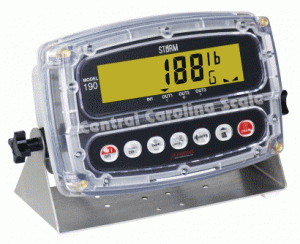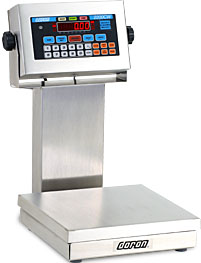Food processing companies play a crucial role in ensuring the supply of safe, nutritious, and consistent food products to consumers. However, this industry faces a myriad of challenges that demand constant innovation and diligent attention to overcome. Among the most pressing issues are maintaining product quality and achieving precise weighing accuracy in daily production. In this article, we delve into these challenges and explore how companies are navigating them to meet consumer expectations and regulatory standards.
1. Quality Assurance and Food Safety
One of the paramount concerns for food processing companies is maintaining the highest standards of quality and safety for their products. In an era of heightened awareness about foodborne illnesses and allergens, consumers demand transparency and accountability from manufacturers. Ensuring quality begins with sourcing top-grade raw materials and implementing stringent quality control protocols throughout the processing chain. Companies must adhere to Good Manufacturing Practices (GMPs), Hazard Analysis and Critical Control Points (HACCP), and other regulatory frameworks to minimize contamination risks.
Advanced technologies such as blockchain and Internet of Things (IoT) applications are now being integrated to enhance traceability, allowing companies to identify and rectify potential issues swiftly. This level of transparency and proactive approach to quality assurance instills consumer confidence and cultivates brand loyalty.
2. Weighing Accuracy and Product Consistency
Accurate weighing is a fundamental aspect of food processing, directly impacting product consistency and cost management. Errors in weighing can lead to variations in product composition, affecting taste, texture, and appearance, which is unacceptable in a competitive market. Moreover, inaccuracies can result in overproduction or underproduction, leading to wastage or stock shortages, respectively.

To tackle this challenge, companies invest in advanced weighing technologies such as more automated weighing systems, over & under check weighing, longer lasting accurate load cells, and precision portion scales built to withstand the food processing environment. Regular calibration and scale maintenance of these instruments are crucial to ensure their accuracy and reliability. Additionally, implementing Statistical Process Control (SPC) methods enables real-time monitoring and data analysis to identify potential deviations and maintain optimal performance.
3. Optimal Utilization of Weight Scales
Food processing companies often operate on tight profit margins, making efficient utilization of resources paramount. Electronic scales play a central role in production, and their performance directly impacts productivity and cost-effectiveness. The challenge lies in selecting the right type of weight scale for specific applications and ensuring its proper maintenance.
Different locations in the facility may require different types of weight scales, ranging from bench scales for small portions to heavy-duty stainless steel floor scales for bulk quantities. Integration of programmable scale controllers can streamline production and reduce human error. Regular training of personnel in operating and maintaining weight scales is essential to ensure their longevity and reliability.

4. Compliance with Evolving Regulations
The food processing industry operates in a dynamic regulatory environment, with standards and guidelines subject to change. Companies must keep pace with these evolving regulations to avoid compliance issues and legal repercussions. Non-compliance not only jeopardizes consumer safety but also undermines brand reputation and market position.
Staying compliant requires continuous monitoring of regulatory updates, participation in industry associations, and investing in workforce training programs. Collaborating with regulatory experts can provide valuable insights into current and upcoming requirements, helping companies stay ahead of the curve.
5. Sustainability and Environmental Impact
As the world becomes increasingly environmentally conscious, food processing companies are under pressure to reduce their environmental footprint. This entails minimizing food waste, optimizing energy consumption, and adopting eco-friendly packaging solutions. Moreover, companies are exploring alternative sourcing of raw materials and engaging in responsible sourcing practices to support sustainability initiatives.
Final Thoughts:
The food processing industry faces a multitude of challenges, with maintaining quality and improving weighing accuracy, while improving the durability of the weighing equipment. By embracing cutting-edge technologies, adhering to best practices, and staying attuned to regulatory changes, companies can surmount these hurdles and continue to deliver safe, high-quality food products while safeguarding the environment and consumer trust. Be sure to contact our sales department (919) 776-7737 for more info on our food processing scales and weighing equipment that we offer.
